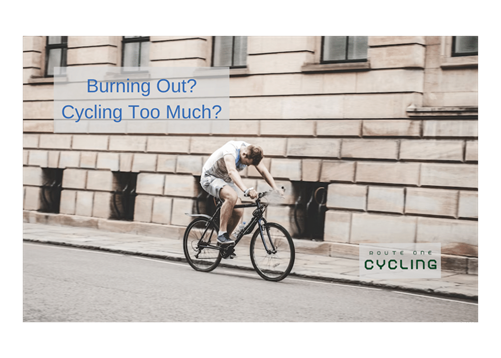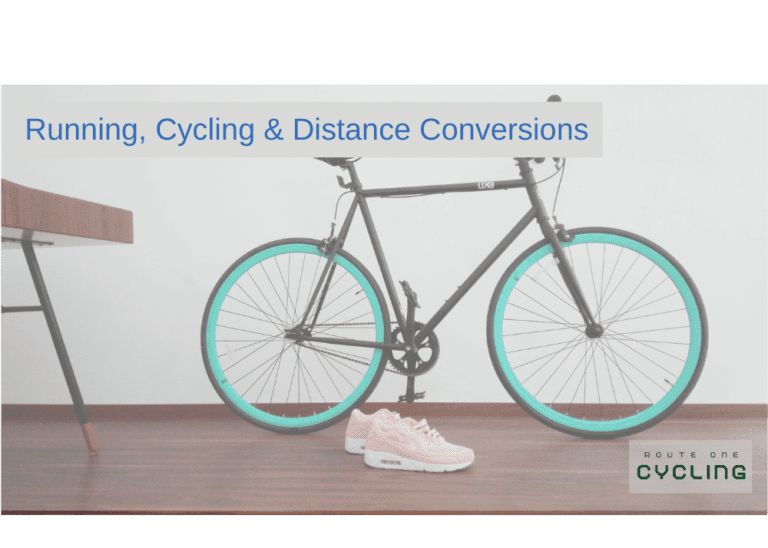How Much Cycling Is Too Much?
I get it, you want to get as in shape as possible to be able to show yourself off to your friends this coming summer. Well first off, if you want to get in shape – make sure you’re eating correctly first – and second it may be helpful to know how much cycling is too much. You will lose weight and feel great, but you also can start to feel lethargic, tired, groggy and grumpy when you ride too much. And believe me, there is such a thing. I have approached it many times.
In this post you will learn about what “too much” cycling means to you – because to be frank – “too much cycling” is not the same for everyone. I am able to ride a lot more than other folks in my family, and there are a lot of people in my own biking group that ride a lot more than me. What is understood though amongst all of us in our group is knowing how much cycling is too much for their own bodies.
Invest in your knowledge:
- How many Miles Should I Bike a Day?
- Can’t sleep after Cycling?
- Should I focus on Speed or Distance Cycling?
- Should I Cycling For Distance or Time?
- Best Insoles for Cycling
- Cycling and Toe Numbness


Is there a such thing as cycling too much?
Yes, though it is totally dependent on your own body. Too much cycling for you may be 10 miles a week, or 300 miles a week. The range depends on your background in riding. It is most important to take it slow based off of the amount of athletic history you have from before.
If you are just starting out, begin with riding 3-4 times a week, with 1 of the rides being a multi-hour slow ride and the others being a shorter thirty minute to one hour long ride and see how you feel. From there you can increase or decrease the amount of riding that you do. This is a good baseline for most people that have some athletic history but not a much
How much cycling is too much?
There isn’t a concrete answer to this question – but if you need a good guideline, it is not that beneficial for your body to:
- Ride every day of the week without rest and recovery time
- To do an endurance long distance ride every single ride that you do
What does this mean in terms of time and distance? This means that if you are not a professional, or trained athlete in your past (school, semi-pro etc.) You probably do not need to ride more than 5 days a week. And if you are exceeding 25-30 hours a week (unless you have competitive cycling aspirations), you may be riding too much.
This is just a guideline and it may be more important to consider listening to signs from your body to know if you are riding too much.
How do I know when I am cycling too much?
The easiest way to tell if you are cycling too much is to look for negative signals from your body. There is a difference from feeling sore, and tired from a ride and feeling exhausted and worn out. This is a directional indicator that you may be riding too much.
Other ways to tell if you are riding too much will include:
- How tired do you feel throughout the next day after riding?
- Are you fully recovered 48 hours after your last ride?
- Is your heart rate elevated 24 hours after your last ride?
- How did you sleep the ride after? (This is typically more so a symptom of dehydration)
- Did you bonk at a far earlier point in mileage than what you are typically used to riding? (This is typically more so a symptom of not eating correctly and resting mid-ride)
The are all signals that your body is starting to not be able to recover correctly or function properly without the correct amount of downtime to rebuild itself from its training.
Am I really cycling too much or am I exhausted for another reason?
You will feel symptoms of exhaustion and overtraining if you are not keeping your body up the way a person that trains their body ought to. Make sure you are doing these things correctly so that you can increase your mileage, speed and time riding safely for your body and you don’t face issues riding:
- Drink Water: This includes electrolytes. If you are not a fan of the sugars or other non-natural ingredients that are put in energy drinks, place a pinch of salt in one of your water bottles (assuming you have 2 bottles attached to your bicycle). This will give you the electrolytes your body is looking for when you begin to sweat out salts from your body. If you do not drink enough water during your ride you will lose a lot of sleep the following night.
- Eat while you ride: If you eat and take breaks, your body will recover well and be ready for the next day
- Cool down and warm up: If you do a simple 10 minute warmup and 10 minute cool down, with stretches, and a brisk walk or slow jog, then your body will bounce back far faster than if you were to ignore it. If you want, you also can skip a warm up if you are doing a long ride. Just make sure you are riding in slow enough to breath comfortably out of your nose and talk conversationally for the first 30 minutes or so. This gives your heart enough time to turn on and function correctly.
- Sleep: The body repairs itself when you sleep. Get 8 hours of sleep to function correctly the next day and for your body to rebuild the muscles in the legs and build muscle in the heart after training.
Is it ok to do cycling every day?
It is ok to do cycling every day if you know what you are doing and why you are doing it. You can do a recovery ride every day to keep your legs moving and your heart healthy. However, a multi-hour endurance ride every day is not recommended unless you are a an athlete in training.
Conclusion
How much cycling is too much? Cycling every day of the week for multiple hours is not recommended to the uninitiated cyclist. Though if you are riding for recovery, or to get out of doing nothing in a relaxed easy pace, you can ride every day. Make sure that you are listening to your body to make sure that you are recovering the correct way so that you won’t get exhausted from overtraining. It is fairly difficult to put yourself back in the correct mind state after knocking yourself out of it from over-training.






![What to Eat Before Cycling In The Morning [The Champions’…]](https://routeonecycling.com/wp-content/uploads/2023/05/What-to-Eat-Before-Cycling-In-The-Morning--768x548.png)
